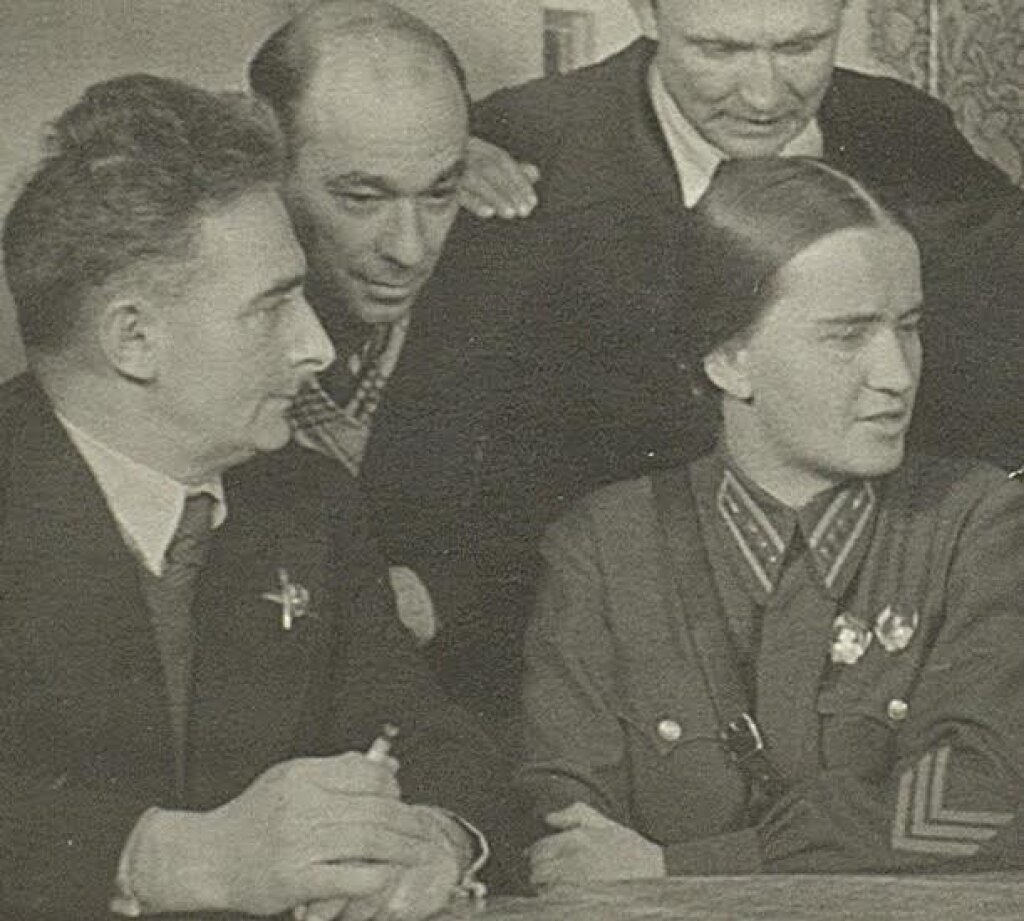The Jordan Center’s Colloquium Series serves to introduce the most recent work of scholars within the Slavic field. Participants come from universities across the country and abroad, and work in disciplines ranging from history, political science and anthropology to literature and film. In this session of the Fall 2015 Colloquium Series, Robert Bird will join us from the University of Chicago to speak on "Synchrony and Matriarchy: Documenting Female Subjectivity in Dziga Vertov and Eilzaveta Svilova’s The Three Heroines (1939)."
Three Heroines (1939) was Dziga Vertov’s final independent film before World War II, completing a trilogy films about women in the USSR, after Three Songs of Lenin (1934) and Lullaby (1937). It showcases a trio of female aviators who in September 1938 undertook a record-breaking crossing from Moscow to the Pacific Ocean on an airplane named “The Motherland.” After losing radio contact the crew made an emergency landing and spent ten days alone in wilderness, thereby earning nationwide fame and an audience in the Kremlin, which Stalin made into a celebration of socialist matriarchy. Barred from filming the flight or the Kremlin reception, Vertov and Svilova centered their film’s action on the men who tracked the Motherland’s flight, rescued the women from the deepest taiga, and interpreted their feat in speeches and newsreels. Moreoever, Vertov and his co-director departed markedly from Vertov’s usual practice by relying heavily on reenactments and animations, which they intersperse with newsreel footage of mass rallies and interviews shot by various hands along the women’s journey home. Vertov and Svilova laid particular stress on the soundtrack, which intersperses the noise of telecommunications and navigation equipment with the women’s telephone calls to their families, speeches by the women and political leaders, and a rousing anthem commissioned for the film. The soundtrack was a major factor in the shelving of the completed film by the authorities, who insisted on a voiceover commentary. How do Vertov and Svilova's strategies of representing female labor illumine the "lyrical" turn in Vertov's documentary practice under socialist realism? Bird will examine the tension between Vertov/Svilova's film and the 1939 memoir of Marina Raskova, the navigator of "The Motherland," who became a public activist and inspired several unrealized film projects by Vertov. These contrasting reenactments of The Motherland’s flight allow us to identify points of stress within Vertov’s representations of gender and also within his approach to documenting Stalinist civilization at its deepest moment of crisis.
Bird is an Associate Professor in the Department of Slavic Languages and Literatures and the Department of Cinema and Media Studies at the University of Chicago. His main area of interest is the aesthetic practice and theory of Russian modernism. His first full-length book Russian Prospero (2006) is a comprehensive study of the poetry and thought of Russian poet and theorist Viacheslav Ivanov. He is the author of two books on the film-maker Andrei Tarkovsky: Andrei Rublev (2004) and Andrei Tarkovsky: Elements of Cinema (2008). In 2012 he published Fyodor Dostoevsky, a brief, critical biography. His translations of Russian religious thought include On Spiritual Unity: A Slavophile Reader (1998) and Viacheslav Ivanov’s Selected Essays (2001). Recent publications include essays on Soviet wartime poetry and the work in film and video of Aleksandr Sokurov and Olga Chernysheva. He is presently at work on a book manuscript ‘Soul Machine: Socialist Realism as Model, 1932-1941.’

